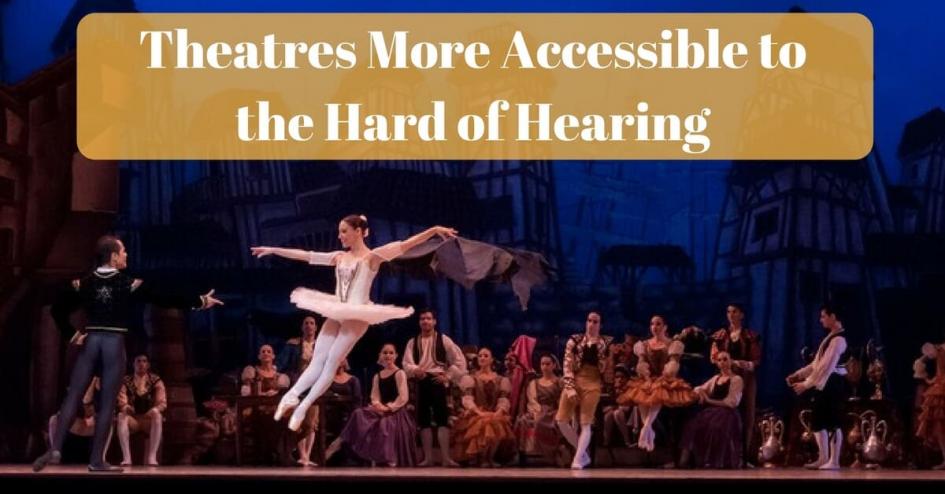
Theatres More Accessible to the Hard of Hearing
The charity Stagetext provides both captioning and live subtitling services to theatres and other art venues. The mission is to make the performing arts more accessible to people who are hard of hearing. Stagetext recently received funding totalling £6,800 from the City of London Corporation’s new Central Grants Programme. These funds are set to go towards not only developing accessibility services such as captioning but towards training of other organisations as well. The idea is that by training other organisations to use services such as live subtitling, accessibility can improve throughout the UK. Stagetext also plan to use some of the funding to train theatre staff to better accommodate people experiencing hearing loss.The idea of captions in live theatre is similar to those that one would see when watching television. The main difference is, of course, the lack of a TV screen! The actors’ words are placed on an LED screen, which is placed either in front of the stage or actually within the set itself. The screen captures the actors’ words as they are spoken or sung, providing real-time captioning of the live performance. Captions also include additional information such as sound effects, offstage noises and the names of speakers. This assists in providing a fully immersive experience throughout the performance. If you’ve ever watched captioning for live TV, such as during news programmes, you’ll know that something that can be quite frustrating is the delay that often occurs between what is being said on the screen and the captioning below. The people at Stagetext have recognised this issue, and aim to tackle it head on. They acknowledge that timing is crucial to overall enjoyment of the performance. On the one hand, the captions should not pre-empt the actors, but any lag can then cause jokes or key punchlines to be lost. The way Stagetext has skilfully navigated this issue is through the use of advanced captioning software. This technology allows a person specifically trained in captioning to prepare the text in advance, formatting the script into the software itself. The captioner will watch a recording of the performance several times over to understand where the crucial moments are and to identify any issues that may arise. On the day of the performance, the captioner uses this software and the pre-loaded script to cue the captions live, as the performance is ongoing. This means that the captioner will be well aware of what to expect from the performance, and can ensure that delays are minimised. A short video, produced by Stagetext, gives a good overview of how captions are prepared.Stagetext also works with museums and galleries to provide captioning for lectures and talks. Live subtitles are also provided, but using different technology called speech-to-text transcription (STT). STT transcribes each word uttered by a speaker using an advanced electronic keyboard. This keyboard types shorthand, or phonetically, so it mimics the way words sound rather than their proper spelling. The words then immediately convert into English text by a computer software programme. This once again minimises any delays in captioning, and provides for an all-encompassing experience for audience-goers who experience hearing loss.Stagetext is just one of eight charities to receive funding in the first round from the new Central Grants Programme, which aims to support community, cultural, educational, environmental and employment projects within London. The funding appears to be working: a guide to captioned performances in the Big Smoke show numerous offerings by Stagetext, as well as some in-house captioning as well. If you’d like to find out what is on offer nearer to home, Access Scottish Theatre provides a similar service for locating captioned performances.If you’ve had trouble hearing at live performances, consider taking a hearing test. House of Hearing offers hearing care at four centres in Edinburgh, Galashiels, Perth, and St Andrews. Call us on 0131 220 1220 for more information.Whether it is an old musical classic or a brand new, controversial play, live theatre is always something to be enjoyed. It can provide fresh topics of conversation with friends and often forces us to reconsider preconceived notions about how we view the world around us. Considering all the benefits that theatre can provide, and the enjoyment that so many people get from seeing a production, it is no wonder that the charity Stagetext recently received funding to make the theatre more accessible to people who experience hearing loss.
Our Clinics
All House of Hearing clinics are in town centre locations and accessible to public transport and parking. Home visits also available if mobility is an issue.


.png)
.png)
.png)

.png)
